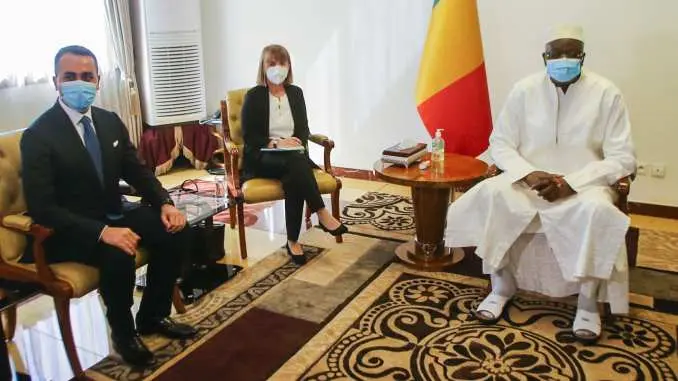- P.O. Box: 11482 Yaoundé, Cameroon; Headquarters: Efoulan, Yaoundé 3
- contact@caessinternational.org

Rome harbors a hidden agenda in its mediation or diplomacy of appeasement between the Malian state and the northern rebel groups. Under the guise of efforts to build bridges for the stability, development, and security of the Malian people, Italy aims to structure the migration factor within the ongoing crisis in the country. This Italian stance occurs amid the disengagement of most Western countries and Mali’s increasing isolation. Meanwhile, Italy continues its cooperation with Mali by constructing an embassy in Bamako in 2021 and strengthening security cooperation through the deployment of Italian special forces within the European “Takuba Task Force,” aimed at fighting terrorism broadly, as well as separatist and jihadist armed groups in northern Mali.
Additionally, the Italian NGO “Ara Pacis Initiatives for Peace” acts as Rome’s secular arm in Mali for humanitarian efforts and mediation. This NGO works alongside Italian authorities to:
– Ensure the functioning of the “Permanent Strategic Framework” (CSP);
– Accelerate the implementation of the 2015 Algiers Peace Agreement between the Malian government and former rebels;
– And particularly, strengthen the fight against irregular or clandestine immigration.
The latter point underpins the establishment of a partnership against illegal migration, with Italy as a key priority due to its role as the main entry point for sub-Saharan migrants. This is because the northern Malian desert is one of the most frequently used routes for African migrants heading to Europe. Moreover, migration is rapidly increasing, doubling between 2020 and 2021, with over 67,000 new migrants according to the International Organization for Migration (IOM). Indeed, each actor stands to benefit from the emergence of this new security agreement:
– Italy seeks to place the CSP at the heart of the response to the migration crisis;
– Northern armed groups view it as an opportunity to finance their alliance as actors close to smugglers;
– Malian authorities see it as a way to move away from the Algiers Peace Agreement and relieve pressure from global multilateral bodies (UN, European Union, and ECOWAS).
However, for armed groups and Malian authorities alike, the sub-Saharan migration crisis appears problematic due to the lack of migrant detention centers and the opacity surrounding funds allocated to the CSP.